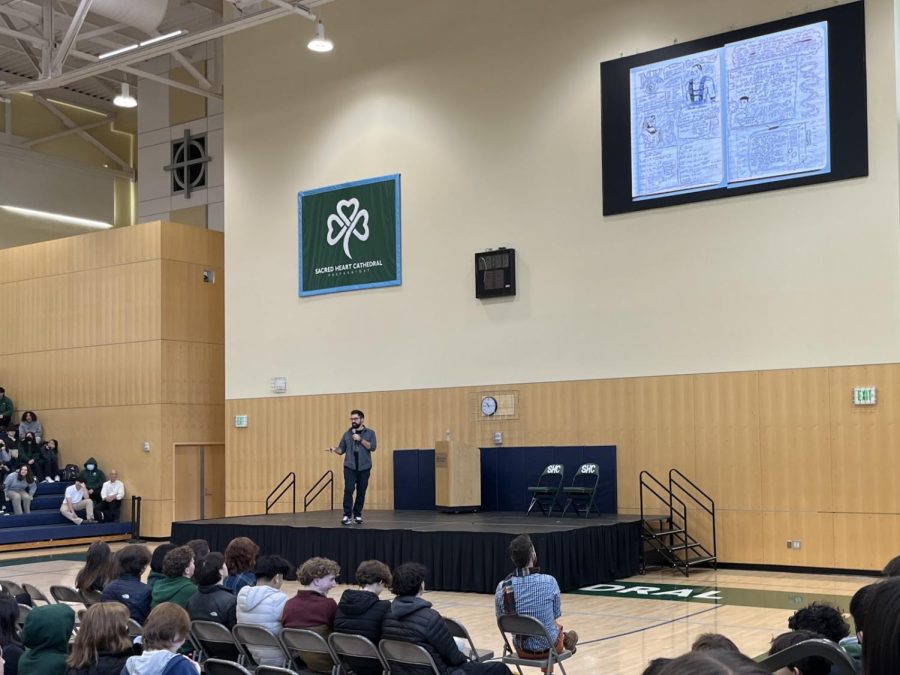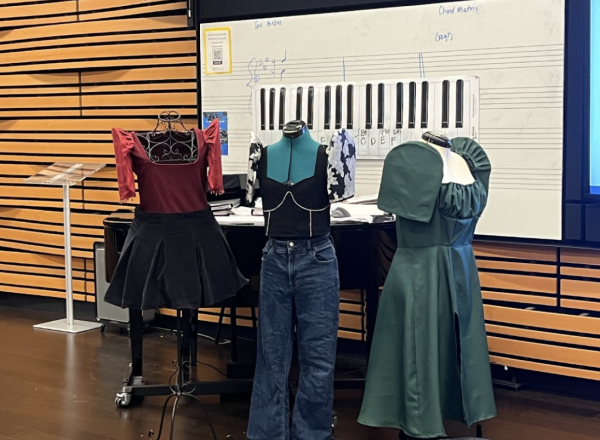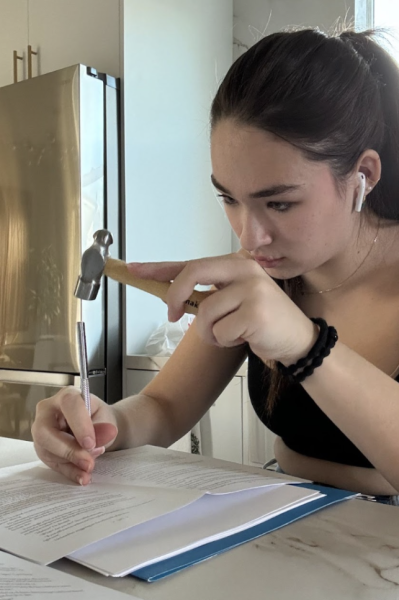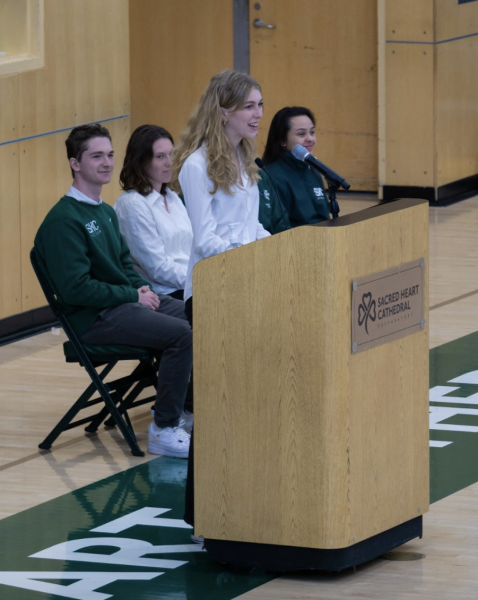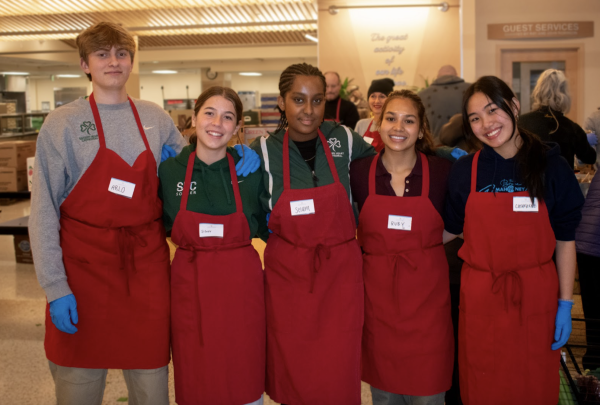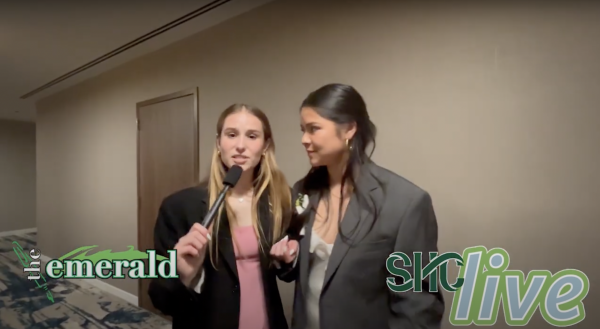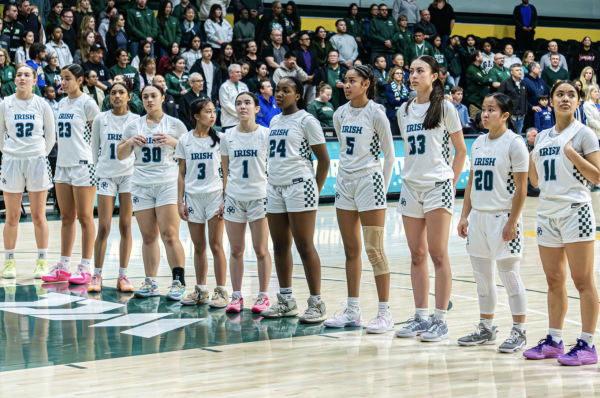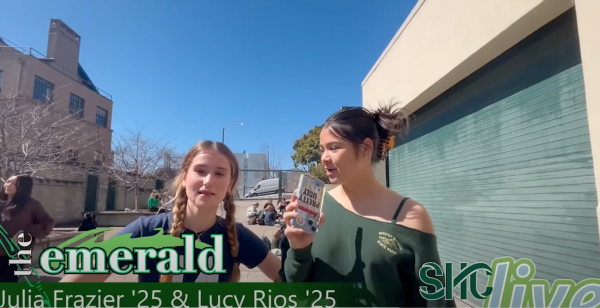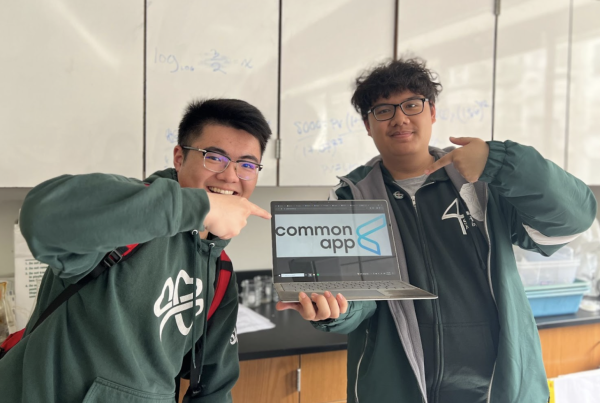SHC Reimagines Stealing With Austin Kleon
Kleon explains his childhood sketches and inspirations to his audience of SHC students.
On Wednesday, November 16, SHC invited Austin Kleon as a guest speaker for a school-wide assembly. He shared stories about his childhood, creative growth, and rise to authorship, concluding with advice about his creative process.
“As an artist,” Kat Leong ‘24 remarked, “I feel I have a lot to improve. I’ve always felt ashamed about ‘stealing’ from other pieces of art and taking inspiration directly from them, but after listening to Kleon talk about his ‘theft’ from artists, I feel a little better.”
Artists and non-artists alike enjoyed his presentation, which was augmented by Kleon’s casual personality, creative graphics, and interesting stories.
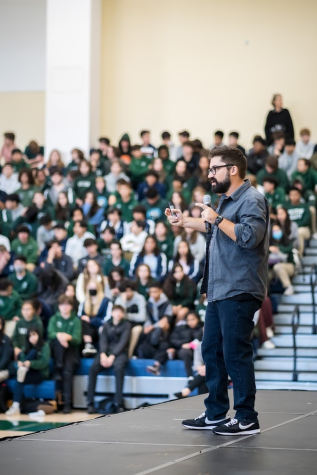
Bianca Langlois ‘23 commented, “My favorite part of the assembly was when he talked about his childhood inspirations and when he finally got to meet Winston Smith, his biggest inspiration of all. It was really fun to see the full circle of his story from kid to adult.”
After the assembly, students, including writers from the Emerald, had the optional opportunity to participate in a special Q&A session with Kleon. Here’s what he had to say:
What’s your process for creating blackout poems?
Great art is often the result of not knowing. The great stuff that I make is usually an exploration. Before creating a new blackout poem, I don’t have an idea of what I want to find, I just go exploring. I never read the article from top to bottom. I just zoom in on a zone of text. Like the poet, Mary Ruefle says, “It’s like it’s a big field of flowers,” and I pick certain ones. I try to zone out and pretend it’s not an actual piece of writing, but a bunch of words. If that doesn’t work, I read the article backward word by word until I find what I’m looking for.
What do you do when you get an art block?
For me, it’s all about input and output. If you’re having trouble with output, problems with output are often caused by a lack of input. When I get an art block, I get off my desk and read, or I go to a museum. I try to fill up and gorge on information. If I keep filling up, I usually find myself being inspired by something.
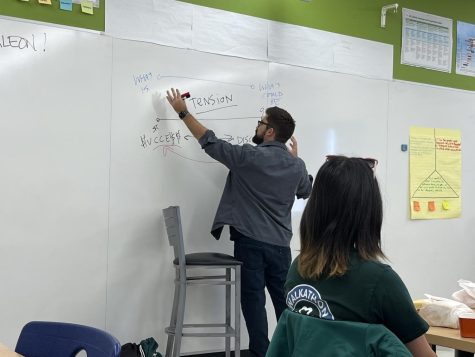
Did you ever feel confined to just doing blackout poems?
Yeah, at times, I felt like I sharpied myself into a corner. To get over it, one of the things that I think about a lot is tension. We talk about tension all the time like it’s a bad thing, but I think a lot of really great creative work comes out of interesting tensions. A big one is success versus discovery. I used to think, “Oh, I have to go for success or I have to work on discovery and the art,” but now, I think interesting art comes out of a struggle between the two. If you only make things that everybody loves, you aren’t doing artistic discovery. But if you completely turn your back on what you did before, you have to be ready to accept the consequences that people might not like your work.
When I found myself in that position, where I thought about completely abandoning blackout poetry for something new, I decided to keep doing it but got to also ease my way into other stuff. A lot of times, even for adults, we want to relieve the tension, but the tension is what gives you the energy to do the work and challenge yourself.
What advice do you have for someone interested in writing and publishing a book?
Read, read everything. Read what you love and what you don’t love, just read a lot. For publishing, here’s the thing: publishers are going to want you, but you don’t need them. What I mean by that is that you have to build your own name first. So, get a website, or some sort of output, and start getting your work out there. Make friends with other writers too. Go for it. What’s important is that you write stuff that you want to read and that you have an audience for it.
Here are also three tips from my agent:
- Get famous first. Just become known for something. That doesn’t mean you have to become a celebrity, it just means that you should get known for the thing that you do. In my case, the weirdo who makes poetry from the newspaper. Fame just means more people know of you than you know people.
- All publishing is self-publishing. You are always in control and the person who is steering your career. The goal of every writer is to get readers, and most importantly, hook them and stay connected with them. Anybody who is remotely interested in you, start a mailing list– get their emails. You are in charge of the show.
- You are the CEO of your own multimedia empire. You are running a business, the business of you. If you want to do books, you can’t just think about books. You have to think about the packaging, the design, and running social media. It’s even more accessible nowadays because phones are miniature multimedia studios in the palm of your hand.
How much of your time is spent creating art, and how much is spent doing the CEO stuff?
Quoting John Waters, “Make stuff up in the morning, sell it in the afternoon.” I’d say half and half. These days, I have a newsletter to write, two a week. I have emails to answer, I have talks to get ready for. It’s really hard for me because I can stay busy doing only that, so I also have to give myself time to do the discovery each day.
How do you narrow down to your specific brand?
When I made my website, I called it austinkleon.com. I wasn’t sure what I wanted to do, but I thought, “If I build this thing and it’s got my name on it, I become whatever I want to be.” And it’s now a container for whatever I want to put out there. The cool thing about my career– the thing I really feel blessed by– is that I’ve been myself with whatever I’m really interested in. My goal has always been to figure out what I truly care about, and I’ve assumed that if I bring enough energy to it, people will come looking.
Mason Brown ‘23, one of the students who listened to the Q&A, “really liked how he used music-related analogies, like talking about guitars or his favorite bands, to further explain his points.”
Kaylyn Lee ‘24, another Q&A participant, found that Kleon’s advice resonated deeply: “I thought the Q&A was a lot of fun because it gave us the opportunity to ask questions. I really liked how he said to keep going and that success is a hustle. It was also super cool to receive an autograph from him afterward!”
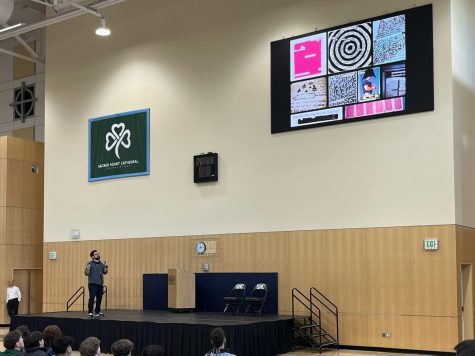
SHC students had a wonderful opportunity to listen to Kleon’s story and advice for artists and aspiring authors. Whether you only attended the assembly or attended the Q&A session as well, Kleon’s personable presentation and inspiring story serve as an impactful lesson and opportunity for all SHC students to redefine what stealing means to them in their art.
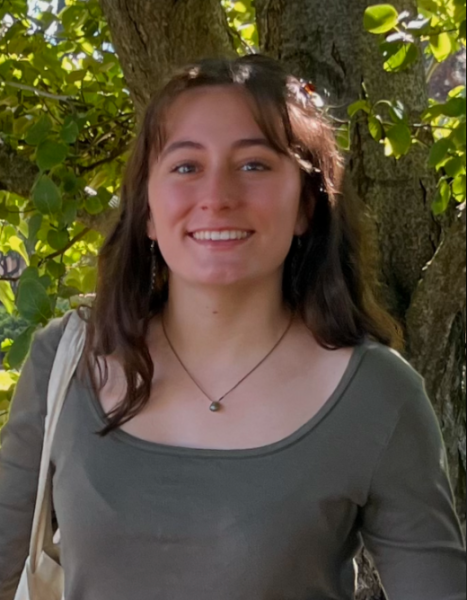
After three years of writing and editing for the Emerald, Isabella (Isa) serves as the Managing Editor in her final year. She loves to read, write,...
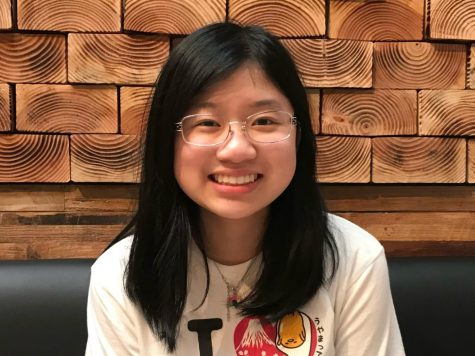
Courtney is excited to serve as this year’s SHC News Editor, helping writers report on SHC’s latest events and stories. Aside from the Emerald,...

Courtney is excited to serve as this year’s SHC News Editor, helping writers report on SHC’s latest events and stories. Aside from the Emerald,...

